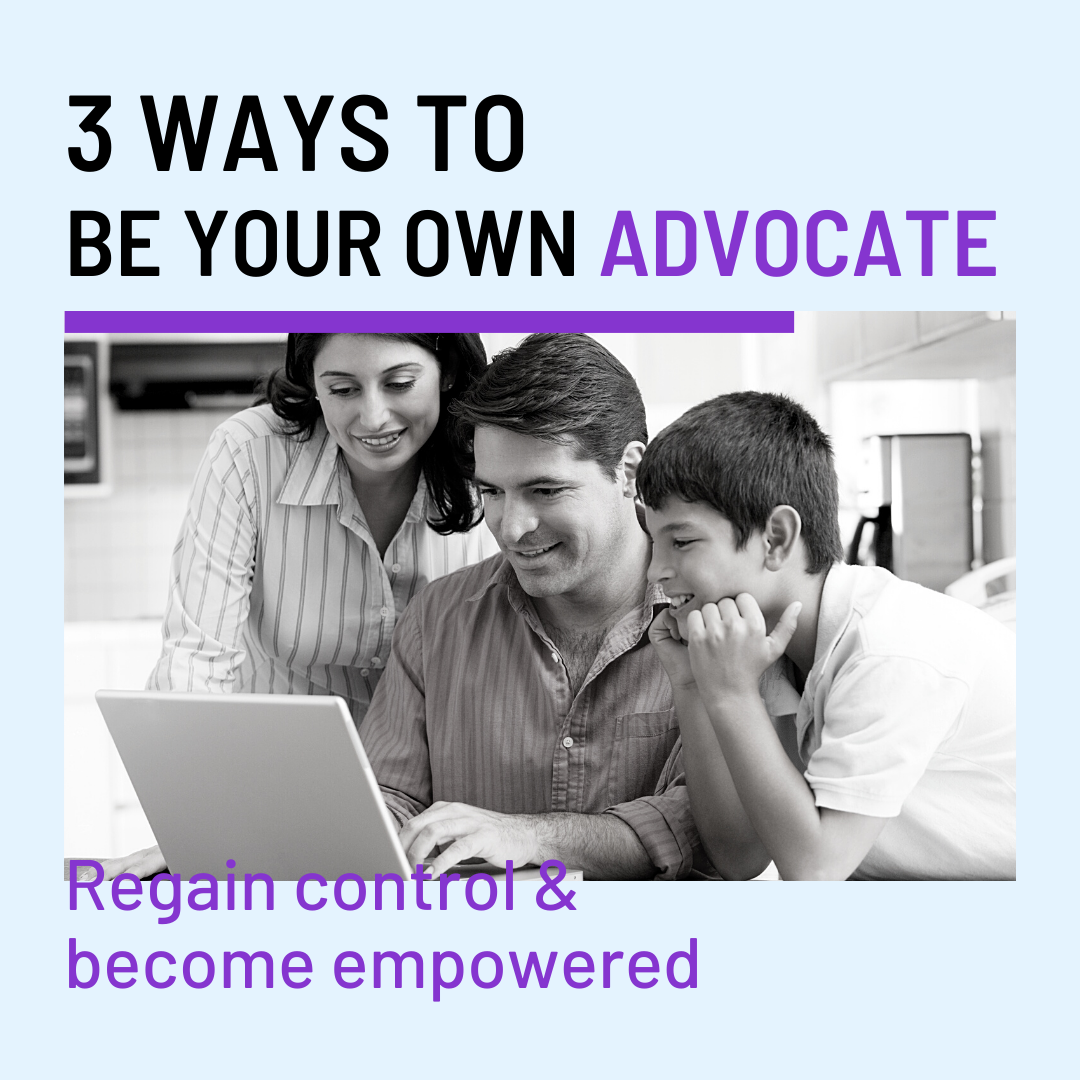
Fear Anger Uncertainty Hopelessness Loneliness
These emotions are a range of feelings and emotions you have after you’ve been given a new diagnosis. How do you go from being scared, mad, hopeless or lonely to feeling empowered, in control, knowledgeable? Maybe even feeling a sense of relief? You become your own health-care advocate. But how?
3 Ways to Become Your Own Health-Care Advocate
Step 1: Do the research
Finding health information on the internet can be overwhelming. Start your research by obtaining information on your diagnosis, treatment, or a procedure from credible, science based resources. People go to the internet as their first source for information. It is important to notice if the website is credible. Credibility websites end in .org, .gov, .edu.
Use a current website.
The publish date of the information on the website is either near the authors name or at the bottom of the page. The information needs to be less than 5 years old. It should also be written by someone who’s a healthcare professional with credentials such as DO/MD, BSN, MSN, PhD, APN, Pharm D, etc.
A website might be a scam
A website is a scam if it sells you a treatment that states it can work for any condition – no ONE treatment works for everyone. When someone uses the word “natural,” it doesn’t always mean that it is SAFE or that it works. Personal stories or anecdotes are not proof that a product works. Your first clue that the site is a scam is who owns or sponsors the site. The owner or sponsor may not have the authority to make the claims they have posted on their website and may be in direct competition with credible resources.
Be critical of information
Be critical of information that you take in, videos that you watch, and of the internet in general. Once you review the information write down any questions you have. Save these questions for when you visit your healthcare provider. Often times when you’re in the moment or emotions are high, you might forget a question and it can be hard to get ahold of your provider later on. Some of my favorite resources for credible medical information are Medline Plus, The Mayo Clinic, & John Hopkins Library.
Step 2: Reach out and get support!
Coping with unexpected news can be emotionally draining, it can be taxing. I don’t recommend doing it alone. When you’re ready, reach out to loved ones like friends or family. Reaching out to people that you trust and feel close to can relieve some of the stress. If you have a treatment, therapy appointment or a doctor’s appointment, bring someone with you! Give them a job like writing down information or asking a questions. One person might pick up on something the other person didn’t. 2 sets of ears are better than one.
Research shows that people who have social support are more resilient, and resiliency helps with reducing feelings of loneliness and isolation, which often times leads to improved outcomes. Remember, you’re not alone.
Step 3: Communicate effectively
To be your own health-care advocate be:
- A teammate
- Kind
- Persistent
- Listen
Listening is an important part of communication. Remember, communication is a 2 way street. You want a provider that hears you out and listens to your concerns, but you also want to listen to your provider or nurse. This may be difficult when they explain why a medication or treatment might not be a great option for you, but it is important.
Take notes, and really make sure you understand your treatment plan, if you don’t – ask for clarification. Medical terminology can be difficult to understand, don’t be afraid to ask your healthcare provider or nurse explain something in a different way if you’re not understanding the information.
Being your own health-care advocate requires you to engage in your care as much as your health-care provider. While we enter health-care with expectations for the providers, we should have expectations for ourselves to be active in our own care. Active to the point of understanding the information being provided to us, the options we may have, and who to talk to about our care.
If you need any help with being your own health-care advocate, we are here for you!

